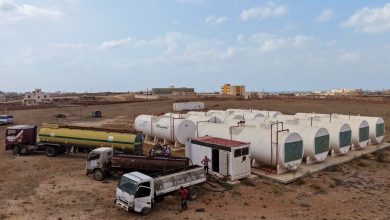Algiers – Ali Miftah, an expert and professor at the University of Skikda, highlighted nuclear energy’s potential as a sustainable solution for Algeria’s energy transition on Tuesday. In a conference held by the Algerian Academy of Sciences and Technologies, attended by its President, Mohamed Hicham Gara, Miftah argued that incorporating nuclear energy into Algeria’s balanced and diverse energy mix could effectively support the nation’s transition to digital and economic sustainability.
During the conference, Miftah emphasized that electricity generated from civilian nuclear sources should be considered a complementary option within Algeria’s energy portfolio, alongside renewables and natural gas. He noted that, while renewables and natural gas remain crucial components, nuclear energy provides a stable and consistent power source to meet Algeria’s growing energy needs.
The Case for Nuclear Energy in Algeria’s Future Energy Mix
Ali Miftah, a founding member of the Algerian Academy of Sciences and Technologies, elaborated on how technological advancements and rigorous safety standards have transformed nuclear energy into a viable and sustainable option. According to Miftah, this energy source offers a significant opportunity to reinforce Algeria’s energy security while bolstering its economic development.
One of Miftah’s primary arguments for the gradual inclusion of nuclear energy in Algeria’s energy mix is its potential to bring “substantial advantages.” Establishing a nuclear power plant in Algeria, he argued, would not only diversify the country’s energy portfolio but also ensure a reliable, continuous electricity supply. Moreover, this move could facilitate mastery of nuclear technologies with applications in various fields, such as industry, medicine, and seawater desalination.
Advantages of Nuclear Power for Sustainable Energy
Highlighting nuclear energy’s efficiency, Miftah pointed out that a given amount of nuclear fuel produces up to 15,000 to 20,000 times more energy than an equivalent amount of oil or coal. He explained, “Like any other thermal plant, a nuclear power plant essentially serves as a boiler, powered by uranium fuel to heat water and produce steam.”
Unlike fossil fuels, nuclear power generation does not emit greenhouse gases, making it a more environmentally friendly option. Additionally, nuclear power offers continuous electricity production, in contrast to renewables, which can be intermittent. This ensures that nuclear power can supply Algeria with a steady and stable energy source to meet its digital and economic demands, while operating at a relatively low cost.
Addressing the Challenges of Nuclear Energy
Despite the advantages, Miftah acknowledged that nuclear energy comes with certain challenges. Establishing nuclear infrastructure requires significant initial investment, particularly in creating specialized facilities and ensuring compliance with safety standards. Furthermore, the handling of radioactive waste remains a “significant challenge” for the nuclear industry globally, as long-term storage solutions are necessary to safely manage these byproducts.
Nuclear Energy and Digital Transformation
In light of Algeria’s ambitions for digital transformation and economic growth, nuclear energy could be instrumental in supporting these objectives. As digital infrastructure expands, so does the need for reliable power. Nuclear energy, with its capacity to produce large amounts of uninterrupted electricity, aligns with the demands of a digitally driven economy, where power stability and resilience are critical.
Nuclear energy’s role in Algeria could extend beyond electricity production. The skills and technology acquired through nuclear development could spill over into sectors such as industrial processing, medical technology, and water resource management. For instance, nuclear technology has applications in medical imaging and treatment, as well as in processes required for desalinating seawater, which is increasingly relevant in arid regions facing water scarcity.
Economic and Environmental Implications of Nuclear Power
Miftah emphasized that nuclear energy has minimal operational costs once infrastructure is established, allowing for affordable electricity over the long term. Unlike renewables, which can be costly to scale due to intermittency and storage limitations, nuclear energy offers a cost-effective solution with consistent output.
In environmental terms, nuclear power contributes to climate goals by avoiding greenhouse gas emissions associated with fossil fuels. This complements Algeria’s existing renewable energy projects and supports its commitments to reduce emissions. Moreover, nuclear energy’s low carbon footprint aligns well with global efforts to combat climate change.
Long-Term Vision for Algeria’s Nuclear Energy Development
Adopting nuclear energy in Algeria will involve a phased, strategic approach. Experts like Miftah advocate for thorough planning, investment in infrastructure, and commitment to international safety standards to ensure the secure deployment of nuclear technology. The Algerian government would also need to develop expertise within the country, potentially through training programs and partnerships with established nuclear energy providers.
Miftah concluded by emphasizing that while nuclear energy requires careful management and investment, its long-term benefits for Algeria’s energy security, economic stability, and environmental sustainability make it a promising solution for the nation’s future. Nuclear energy, he argued, represents not only an energy source but also a pathway to innovation and technological advancement for Algeria.
In the coming years, Algeria will need to balance its growing energy needs with its environmental responsibilities. With careful planning and commitment, nuclear energy could play a pivotal role in securing a sustainable, resilient, and diversified energy future for Algeria.
For more information on Algeria’s energy developments, visit DZWATCH.DZ.




